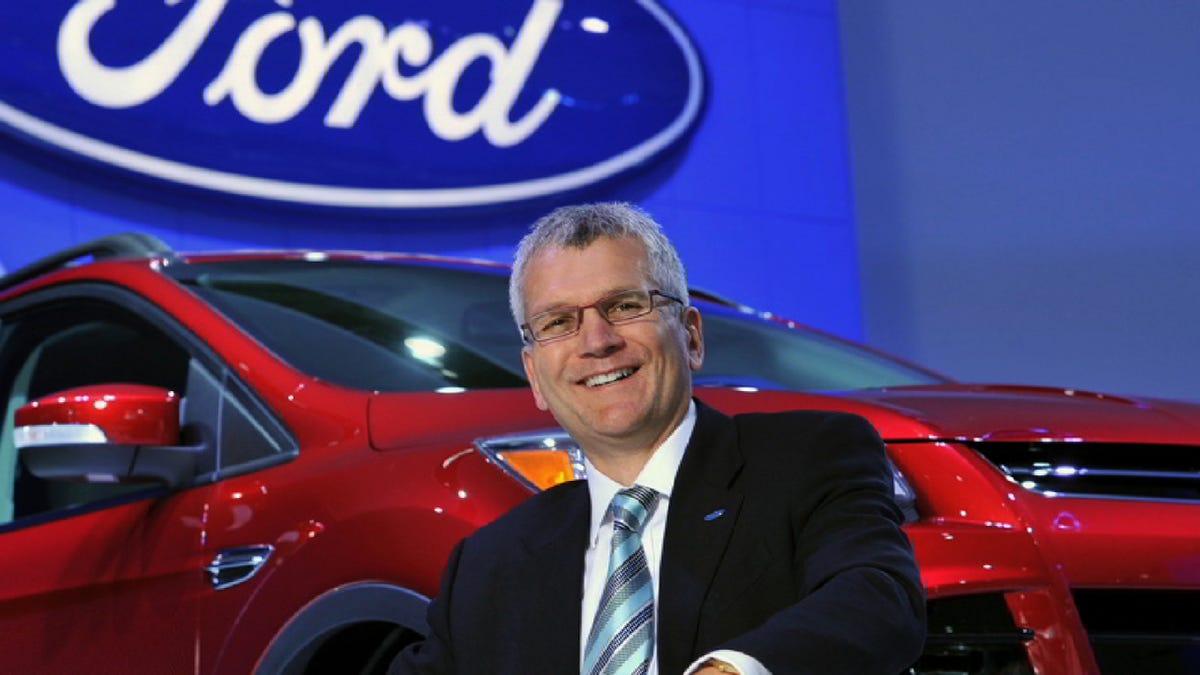Ford races to create standard for connected cars
Cars are getting smarter, but they're also getting fragmented, with each manufacturer offering a separate setup for smartphone connectivity. Here's an update on how Ford is trying to bring the industry together.

In the 31 years Paul Mascarenas has spent at Ford, the last three as chief technical officer, the company has made some drastic strides forward when it comes to technology. SYNC launched in 2007 and, since then, has gone on to span the entire Ford range, installed in over 10 million vehicles. In 2011 it gained ever-better support for smartphone connectivity, AppLink allowing popular apps like Pandora and Rhapsody to control the car's infotainment system.
The original goal was to make Ford cars among the smartest on the road, but not at the cost of safety. "The original point of SYNC," says Mascarenas, "and it sounds almost funny to talk about now, was to capitalize on the growth of handheld devices -- people wanting to bring that into the vehicle. And with the issues around driver distraction, how can we provide a high quality and a safer driving experience?"
Now the company is aiming even higher, making a real attempt at building an industry standard. Earlier this year, Ford opened up AppLink to any other manufacturer who wanted it, offering it through the GENIVI Alliance, an in-vehicle entertainment standards group, as the Smart Device Link API (application programming interface). A few months later, the company doubled-down, announcing the acquisition of Livio, a startup whose Connect API for app developers was making inroads with General Motors.
Ford had effectively bought its way into cross-manufacturer API support, but according to Mascarenas, the Livio acquisition was about much more than that.
"It was a funny conversation at the beginning, as it was kind of like David and Goliath, but it's the other way around, we're David and they're Goliath," said Mascarenas. "When we thought about it very quickly it made sense. They've got a great solution-set...they've got intellectual property and patents. They've got a small, very competent set of developers. Acquisition cost in the end was under $10 million, and what it gives us the opportunity to do is look at consolidating Smart Device Link with Livio Connect, building more critical mass around that solution, and continue to promote it as an industry standard."
And that's an important point: while Livio Connect and Ford's Smart Device Link existed effectively as competing means for app developers to interface with the car, the plan now is to integrate the two, cleanly supporting any existing products.
"A key part of anything that we decide to do is backwards compatible," said Mascarenas. "We don't want to leave anybody with a redundant or orphaned solution."
Surely General Motors was at least a little concerned about that orphaned bit, as just last year GM signed on to start integrating Livio Connect into its cars. The company has nothing to fear, Mascarenas explains: "The only question we had from others was 'Will you continue to support us?' The answer is absolutely yes. We made that clear when we announced the acquisition, that we can do it in a way that is not in any way a conflict of interest. As you think about that, the way you connect the device doesn't matter to the customer. Where the competitive differentiation and the competitive advantage comes is through the content you offer, the experience you provide. That can be completely independent of the protocols and the algorithms you use to actually control the device. We're very comfortable with that arrangement and it seems like others as are as well."
Currently, if a developer wants their app to work in the most popular cars in the world, their job is far more complicated than it needs to be. Each manufacturer that supports smartphone connectivity has its own way of doing it, and so those poor developers are having to continually add support for more and more systems. In some cases, like Toyota's Entune service, devellopers need to completely rewrite their apps. If Ford gets its way, and the mashup of Livio Connect and Smart Device Link becomes a standard, developers would only need to modify their app once and it would work across all cars.
But, Mascarenas clarifies, we're a long way from that, and this Livio acquisition is just a start.
"I think it's way too early to claim victory," he said. "With a competitive environment we're in, that's a race to bring products to market. We have got a number of proprietary solutions out there. I think the only way we're ever going to get to a true industry standard (I'm not even sure if we'll get to a single one, or just reduced complexity) is going to be through consolidation. So I think it's a step in the right direction. I think it'll be a good benchmark and a good example for the industry in terms of how we can work together in a collaborative, non-competitive way, but still continue to differentiate our vehicles and offer a unique customer experience."
Until then, an old adage will continue to ring true: the best thing about standards is that there are so many to choose from.

